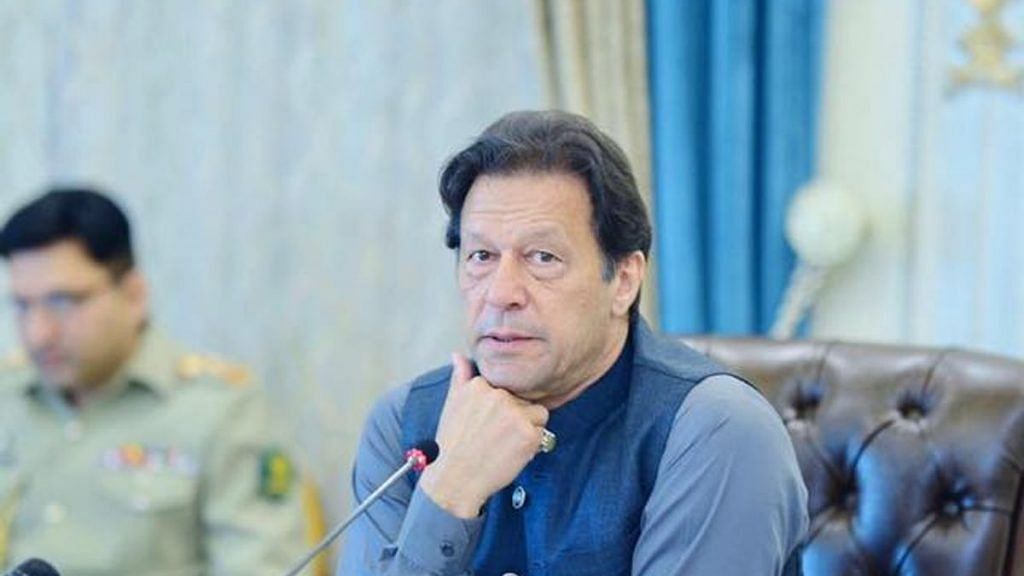The answer to “what would you like to ban in Pakistan today?” has come. Tinder. By banning a few dating apps, Prime Minister Imran Khan’s government would like us to believe that all other prevalent political and social problems in Pakistan have been solved. Dating was the only menace left.
Pakistan Telecommunication Authority (PTA) has banned five online dating applications — Tinder, Tagged, Skout, Grindr and SayHi. It seems someone in the regulatory authority is angry at being ‘swiped left’, constantly. It is heartening to see the PTA regulate the online dating scene when online harassment, abuse and threats of violence against women are flourishing in Pakistan. Not to forget the actual predators roaming free. But dealing with dating is top priority.
Also read: Pakistanis know a lot about Dawood Ibrahim. The don lives in White House, drives a black taxi
The ‘brain’ behind the ban
The reasons for the ban on these dating apps are the same as those applied to all other apps that the regulator has cracked down on in the past, be it gaming or entertainment. That they are immoral, indecent and vulgar. One size fits all — that’s the regulatory approach of the PTA. Tinder is interested in having a ‘meaningful conversation’ with the PTA over the ban.
PTA’s banning spree is guided by an arbitrary code of morality. In July, it banned PUBG for spreading anti-Islamic content and destroying youth. This led to protests online that resulted in overturning of the ban. Something similar happened with Bigo Live. The “immoral, obscene and vulgar content” streaming app was banned and later unbanned. TikToK and YouTube, too, have been warned time and again to block the “vulgar, indecent and immoral content for viewership in Pakistan.”
After having its say in deciding which apps Pakistanis should use in their leisure time, now the Imran Khan government is acting like a strict parent of the adults who refuse to listen to them. This is the digital version of grounding your ‘ill-mannered children’. Ironically, the regulatory bodies such as the PTA hardly have any young people involved in its decision-making that impacts youth. The idea of banning apps is counterproductive for a government that aims for a Digital Pakistan.
On government’s moral thermometer, television serials that show: first cousins being in love as toddlers and getting married, girl that hits on her brother-in-law for she’s jealous of her own sister, romanticising workplace harassment or even a psychiatrist-patient relationship, are all ‘moral, decent and righteous’. That’s the kind of matchmaking content that the officials root for.
Also read: Pakistan’s enemy number one is Israel now. India can wait
Online dating in Pakistan
What threatened the owners of morality in Pakistan was a peaking trend of online dating. According to market intelligence provider Sensor Tower, in Pakistan, Tinder saw more than 440,000 downloads in 2019 alone. While SayHi, Grindr and Tagged saw over 300,000 downloads each, Skout was downloaded 100,000 times in the 12 month period.
In a culture where dating remains a taboo, any platform that gives young women and men space for open expression will be considered a threat. Even today, women are killed for ‘honour’ if they choose to marry out of their own choice. Instead of normalising the conversation around the free will to love, the State believes in banning and not being a facilitator. The hypocrisy is astounding — the consensual relationships are haram but women forced into marriages and minor girls abducted and married to their abductors is kosher.
How the online apps are different from the old times rishta (matrimonial) websites? With these apps, the match-making auntys go out of business. So, the rishta auntys won’t frown upon such regulatory decrees. Nothing threatens the morality of thekedars more than people practicing freewill.
We can always critique the viability of the dating apps or what purpose it serves, but the choice should be left with the people and not the State. It is not that Tinder in Pakistan was an epitome of finding true love. Yet, in a close-knit society, an online service that gave them a choice, was still better than having none.
Now if the PTA thinks that banning these dating apps will stop Pakistanis from dating, then it couldn’t be more wrong. In Pakistan, nothing is off limits for men who send “hello want to fraandship” and “nice dp dear, lets get married dear” messages on other social media apps — LinkedIn, Twitter, Facebook, Instagram — most definitely not meant for dating. Here, every social media app is a ‘dating app’. Forget social media apps, people want to hook up on Ludo Star as well. PTA, good luck banning them.
The author is a freelance journalist from Pakistan. Her Twitter handle is @nailainayat. Views are personal.
